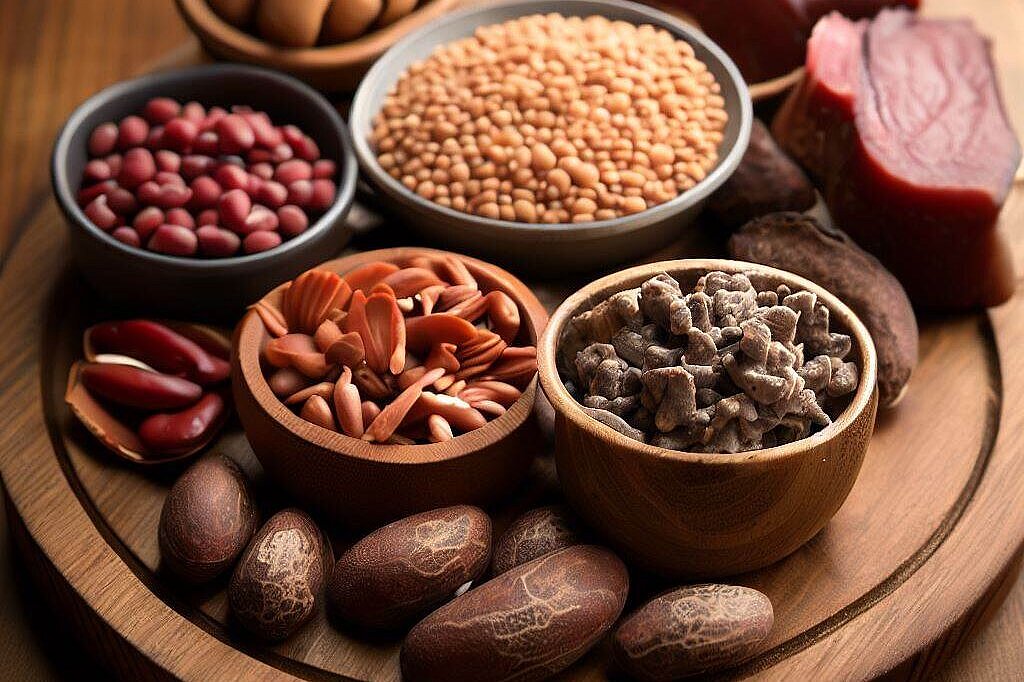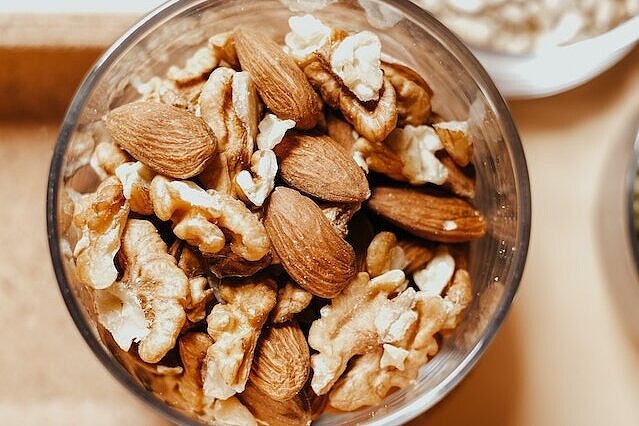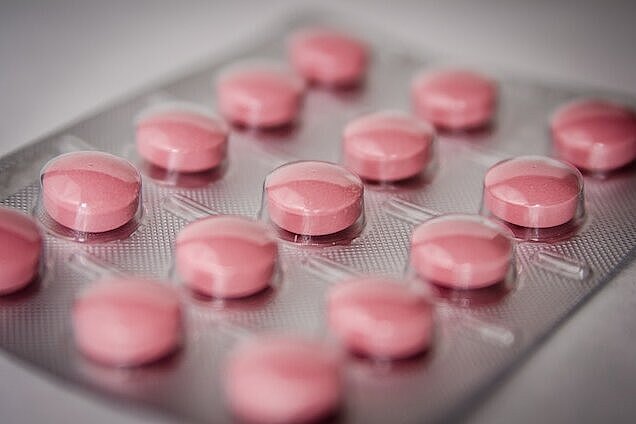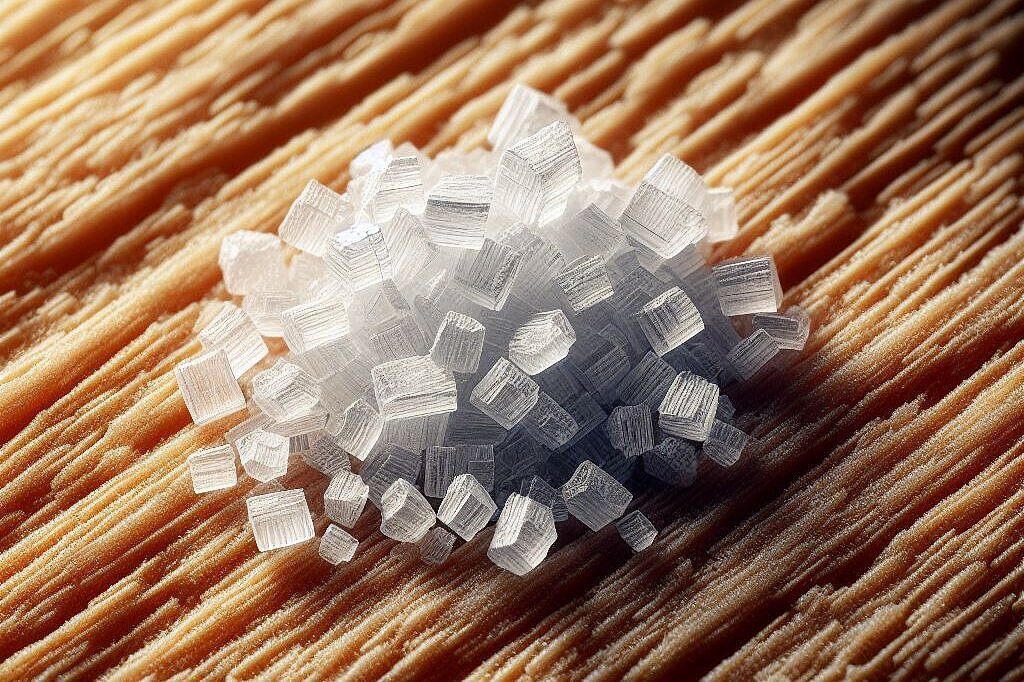Molybdenum
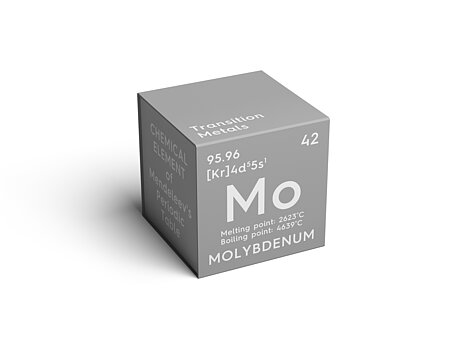
What is molybdenum?
Molybdenum is a metal that occurs naturally in various minerals. It is an essential trace element, which means that it must be obtained from food as the body cannot produce it itself. Molybdenum is mainly found in plant-based foods such as pulses, cereals and vegetables, but also in animal products such as milk, eggs and meat.
What are the benefits of molybdenum for your dog?
Molybdenum has several benefits for your dog. It is involved in the formation of uric acid, which is a waste product of purine metabolism. Purines are components of DNA and RNA and are found in many foods. If your dog ingests too many purines, uric acid can build up in the blood and lead to gout or kidney stones. Molybdenum helps to excrete uric acid and thus prevent these problems.
Molybdenum is also important for the function of enzymes that are involved in the detoxification of foreign substances such as drugs or heavy metals. These enzymes are called sulphite oxidases and help to convert sulphites into harmless sulphates. Sulphites are preservatives that can be found in some foods or drinks. If your dog ingests too many sulphites, he may experience allergic reactions such as a skin rash or breathing difficulties. Molybdenum protects your dog from these side effects.
What are the disadvantages of molybdenum for your dog?
Molybdenum also has some disadvantages for your dog. It can interact with other trace elements such as copper or iron and impair their absorption or utilization. If your dog has too little copper or iron, he may develop anemia or other blood disorders. To avoid this, you should make sure that your dog gets a balanced ratio of molybdenum to other trace elements.
Molybdenum can also be toxic if ingested in excessive amounts. This can lead to symptoms such as diarrhea, vomiting, weight loss or liver damage. To avoid this, you should make sure that your dog does not get more than 5 mg of molybdenum per kilogram of body weight per day.
How can you give your dog the right amount of molybdenum?
The best source of molybdenum for your dog is a balanced diet with high-quality ingredients. You should make sure that your dog gets enough plant-based foods such as vegetables or grains, but also animal products such as meat or eggs. You can also use special food supplements that contain molybdenum, but only after consulting your vet.
You should also make sure that your dog does not get too many foods that contain a lot of purines or sulphites. This includes offal, fish and wine, for example. These foods can increase the uric acid or sulphite levels in the blood and lead to health problems.
Molybdenum is an important ingredient for your dog that provides many benefits. By following these tips, you can ensure that your dog gets enough molybdenum, but not too much. This way you can promote your dog's health and well-being.
If you notice any signs of hypersensitivity or poisoning in your dog, you should see your vet immediately. We are not a substitute for a vet, but we try to be as accurate as possible. Every dog reacts differently and we recommend you get a second opinion or consult your vet if in doubt.
Stay healthy and take good care of your four-legged friend!😊
Similar to Molybdenum
Iron is a chemical element that occurs naturally. It is an important component of hemoglobin, the red blood pigment. Hemoglobin binds oxygen in the lungs and transports it to cells throughout the...
Your dog's copper requirement depends on various factors, such as its age, size, coat type and health. Generally speaking, dogs need about three times the amount of copper that humans need in...
The optimum amount of zinc for your dog depends on various factors, such as his age, size, state of health and diet. The German Nutrition Society (DGE) recommends a daily zinc intake of 2 to 5...
Selenium is a chemical element that occurs in nature in various forms. There are organic and inorganic selenium compounds, which differ in their bioavailability and effect. Organic selenium...
